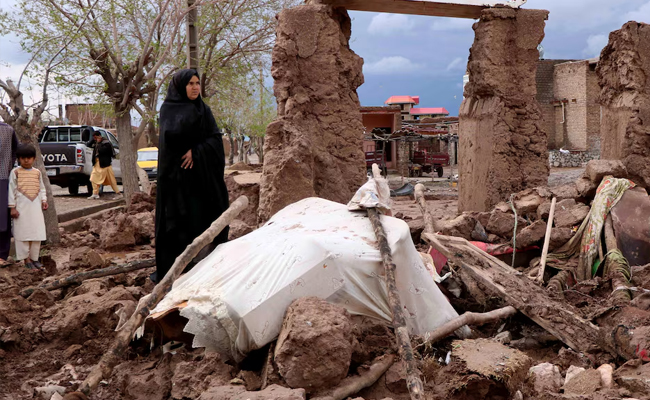
World

When natural disasters strike, large numbers of people lose their lives. Nature does not differentiate between rich and poor, women and men. Many perish in such destruction; some are injured. During such times, rescue operations are carried out on a war footing. People in distress are rescued no matter who they are. At that time, no one cares about caste or religion, or whether it’s a man or a woman. The only focus of the rescue teams is saving lives. This is how it happens everywhere in the world.
But the situation is very different in Afghanistan under Taliban rule. Though it is a hardline Muslim country, it functions differently from other Islamic nations. Recently, Afghanistan was hit by a series of earthquakes. These back-to-back quakes pushed the country into deep tragedy. In just 24 hours, six massive earthquakes struck, killing thousands of people. Afghanistan was already facing severe economic and political crises.
The Taliban government, which controls the country, lacks international recognition, making it difficult to get foreign aid. In such circumstances, these earthquakes have only worsened the suffering of its people. When an earthquake strikes, houses and large buildings collapse like packs of cards. Some are killed instantly under the rubble; many others remain trapped, gravely injured, with broken limbs, gasping for life.
They cry out, pleading to be rescued, waiting for help, desperately calling for a lifeline. Those still alive could survive if rescued and given medical care in time. But in Afghanistan, male rescue workers are not saving women trapped under the debris. Why? Because religion stands in the way. According to Islamic rules, men are not supposed to touch unrelated women. Therefore, they leave, saying that only female rescue staff can save them. As they walk away, the injured women watch helplessly, unable to do anything.
Due to the shortage of female rescue workers, victims remain trapped under rubble, crying out for help. Even in retrieving dead bodies from the ruins, rescuers are following gender discrimination in the name of religion. Sharia is the legal framework of Islam. It consists of certain moral and religious obligations, covering daily life, mandatory religious practices, and personal beliefs, all with strict rules.
However, the way Sharia is implemented varies across Muslim nations. It is not as harsh elsewhere as it is in Afghanistan. Some countries with Sharia law enforce only selected parts of it. Some African nations also implement it. Sudan, for example, abolished its implementation in September 2020, ending 30 years of Islamic rule and officially becoming a secular state.
Globally, countries such as Afghanistan, Bahrain, Brunei, Egypt, Indonesia, Iran, Iraq, Malaysia, the Maldives, Mauritania, Nigeria, Pakistan, Qatar, Saudi Arabia, the United Arab Emirates, and Yemen implement Sharia law. Among all these, Afghanistan under the Taliban enforces Sharia in its harshest form. The punishments for crimes there are notoriously severe and terrifying, needing no further explanation.
Advertisment